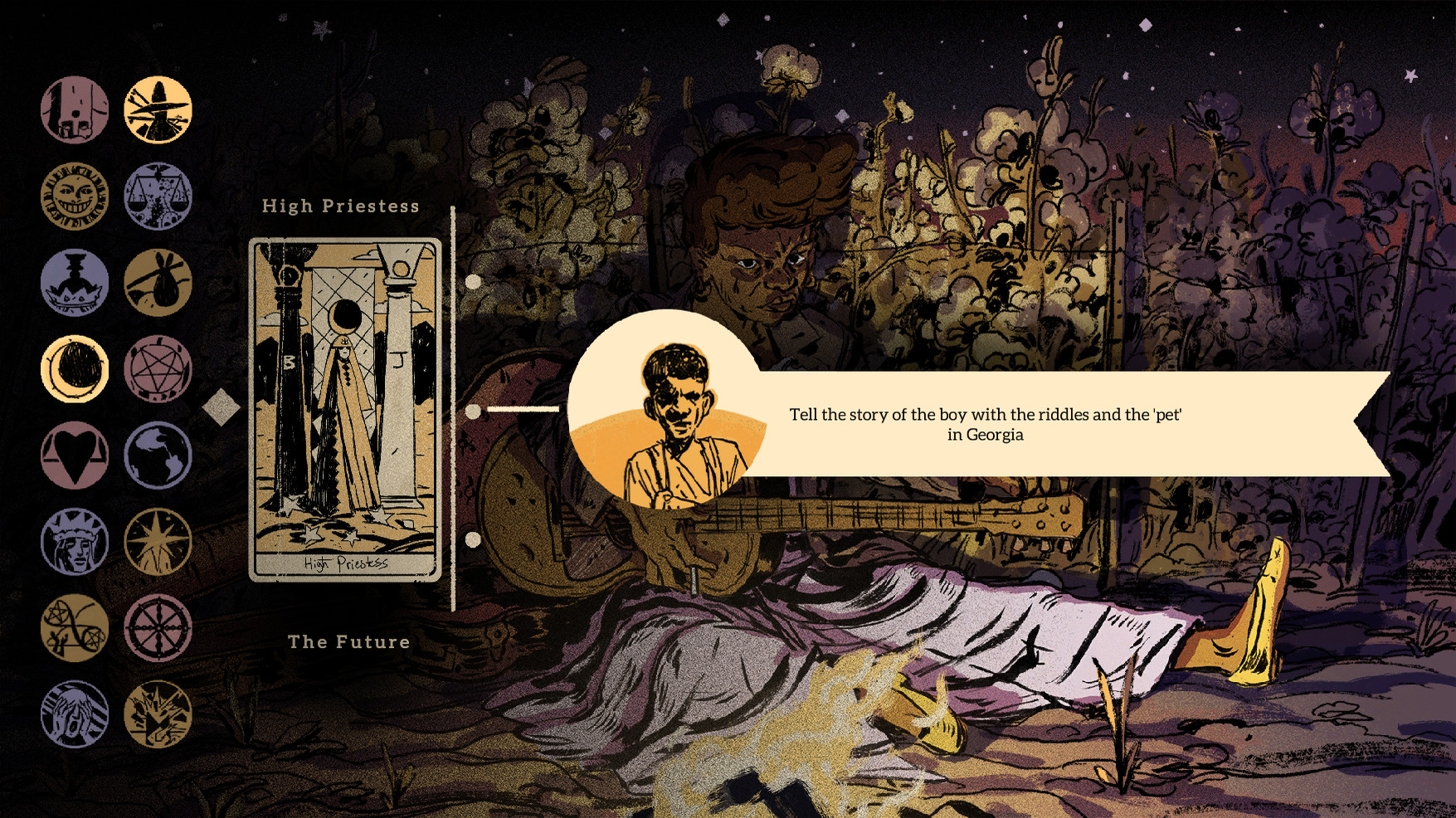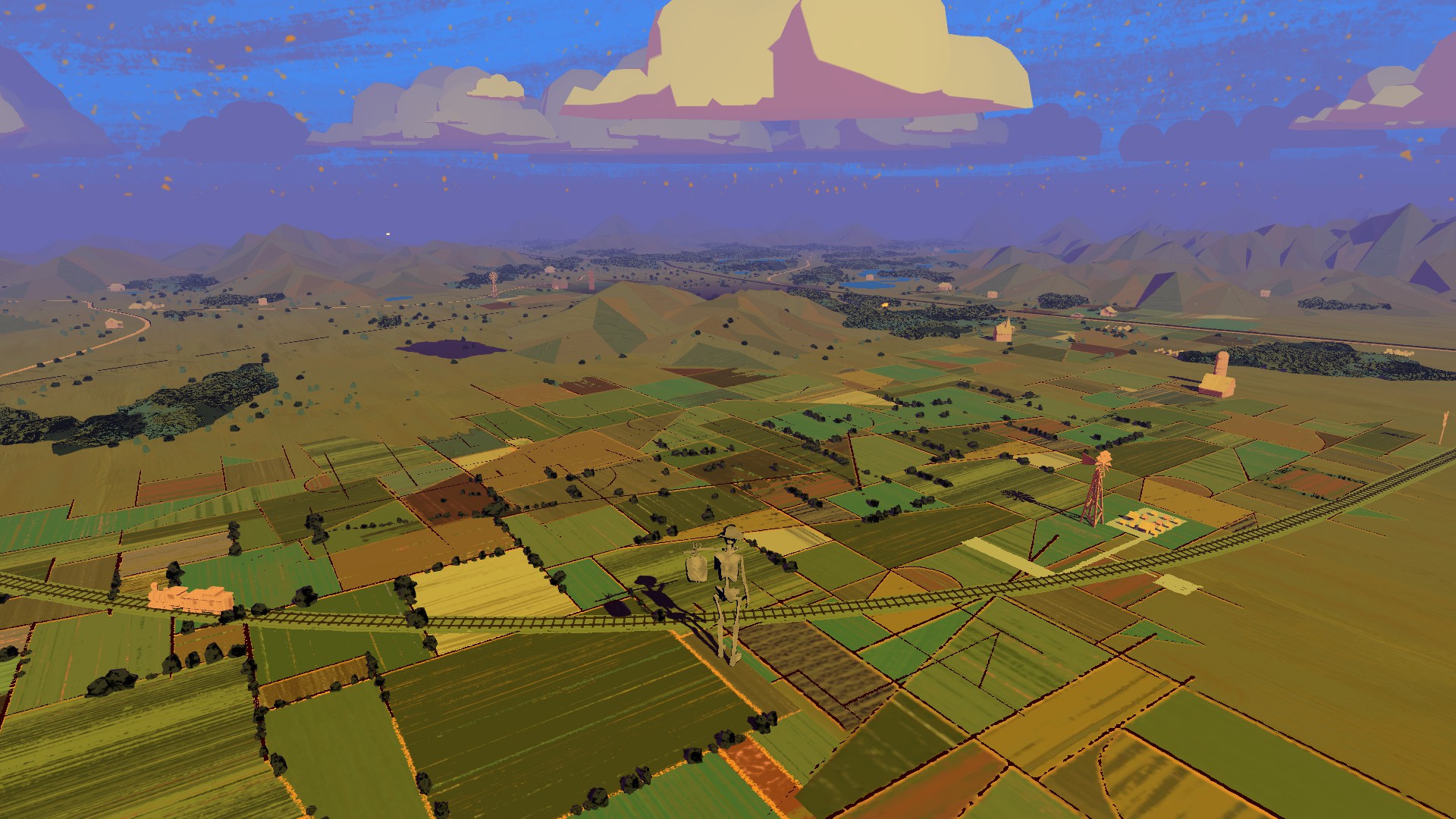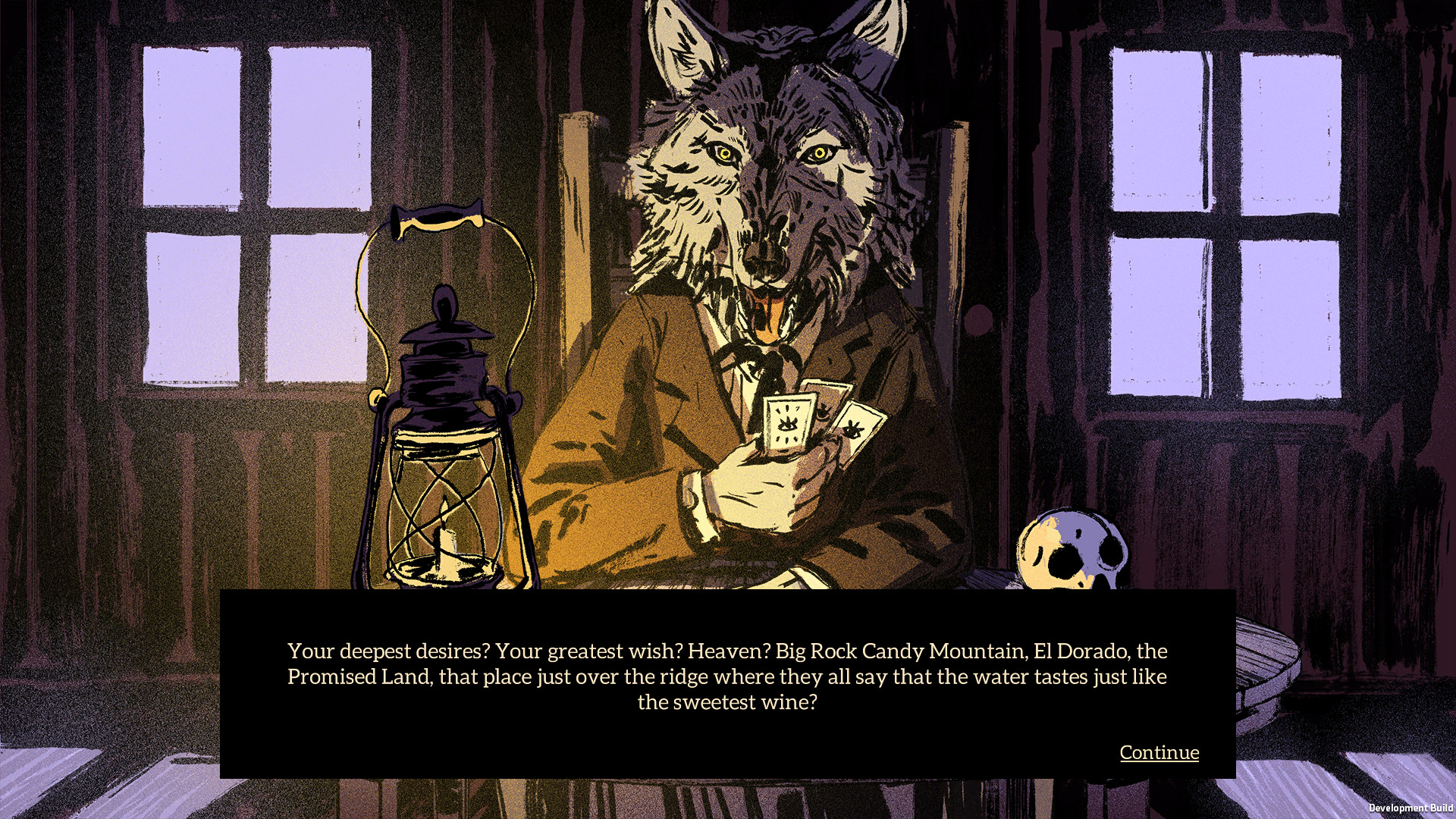Where The Water Tastes Like Wine was a 'commercial disaster,' dev says in painful post
"I’m not sure that games like this one can continue to be made in the current market," Johnnemann Nordhagen said.
Story adventure game
Where The Water Tastes Like Wine struggled critically and flopped commercially, lead developer Johnnemann Nordhagen said today in
a post-mortem of the game, in which he argues that its difficulties don't bode well for experimental indie games.
"Commercially, it’s a disaster," Nordhagen said. "I can’t discuss exact numbers, but in the first few weeks fewer people bought the game than I have Twitter followers, and I don’t have a lot of Twitter followers." (At the time of writing, Nordhagen has 4,272 followers.)
Although Nordhagen received support from publisher Good Shepherd to complete and market the game, Where The Water Tastes Like Wine has yet to break even. "So far, I have made $0 from the game," he said. "That may look like a high number, but consider that it took four years to make — that works out to approximately $0/year … And then once you factor in the ~$140,000 I spent paying my contractors and collaborators for the game, you begin to see that maybe it wasn’t, financially speaking, worth it."
"Joking aside — that’s dismal. And terrifying," Nordhagen said. "At the end of the day it’s astounding that a game that got this much attention from the press, that won awards, that had an all-star cast of writers and performers, that had a bizarre celebrity guest appearance(!) failed this hard. It scares me."
To Nordhagen, it's evidence of a growing trend for indie games: quality, acclaim, and attention aren't guarantees of success. "That last part should be worrying for anyone in the indie games industry," Nordhagen said. "[Where The Water Tastes Like Wine] could have been a non-commercial game, but it would have had to be very different. It would be far less polished, it wouldn’t have had the collaborators that it did, I could not have paid people who couldn’t afford to work for revenue share or for the love of the game (thus, I fear, cutting out some of the most valuable voices that this game was a platform for). I could have developed it as a side project, but it took me four years as is. Basically, I’m not sure that games like this one can continue to be made in the current market."
Nordhagen also discussed the development factors he believes contributed to Where The Water Tastes Like Wine's uphill battle. For example, it received relatively little playtesting, especially close to launch, and it abruptly lost both of its main artists mid-development. "I didn’t originally have the knowledge I needed to tackle many of the issues I encountered during development," he said, adding that the game itself "was too much to take on as a solo dev, and especially too much to take on as a commercial product."
Nordhagen previously worked as lead programmer on Gone Home, which was well-received when it released in 2014. Encouraged by Gone Home's success, Nordhagen was optimistic about Where The Water Tastes Like Wine. However, in 2018, he's unsure if creating games like these is even feasible.
"In 2014, starting a similar project seemed like a good creative and financial risk," he said. "Four years later, making any commercial game at all seems like a bad idea, and taking on the risk of an experimental, ambitious game like Where the Water Tastes Like Wine sounds terrifying."
Writer and designer Steve Gaynor, who also worked on Gone Home, made a similar point about experimental games
when we spoke to him following the release of Fullbright's Tacoma, a delightful narrative-driven game whose sales paled in comparison to Gone Home's at launch.
"I think there were a lot of things about Gone Home’s launch that were kind of 'lightning in a bottle,'" Gaynor said. "2013 I think was a very different time for smaller indie games coming out that were kind of reaching into the triple-A fidelity space. Also I think that we were lucky to be responding to what I think was a real desire for more games that were less violent or more focused on story or whatever. And so yeah, Tacoma’s release I think has been a much more realistic version of what launching a game is usually like."
Nordhagen's post-mortem focuses on the game's development and reception, but he's not the only member of the team to look back on Where The Water Tastes Like Wine. Lead editor
Laura Michet wrote a lengthy analysis of the herculean task of coordinating the game's many writers, and several writers, like Emily Short, have explored
how they wrote their individual characters. You can find more analyses in
Nordhagen's post.
![The Year of Incline [2014] Codex 2014](/forums/smiles/campaign_tags/campaign_incline2014.png)
























